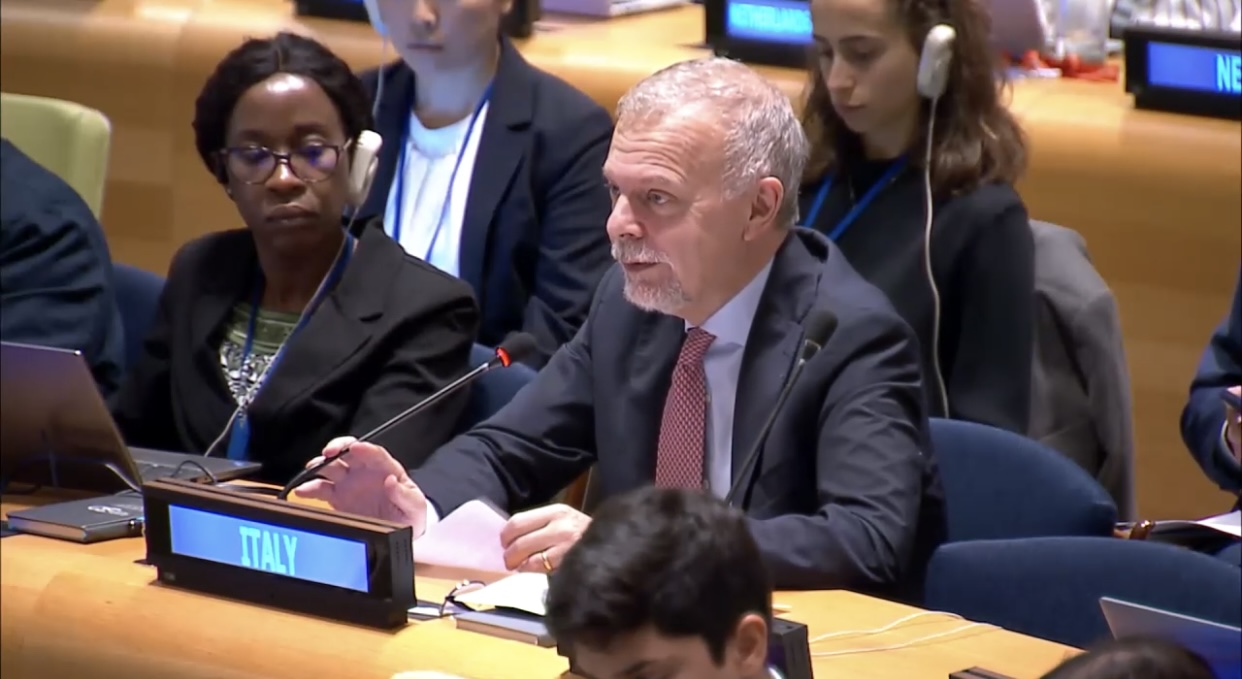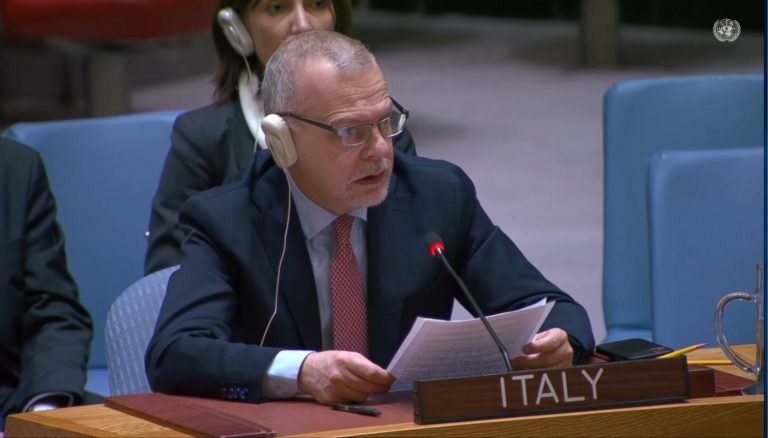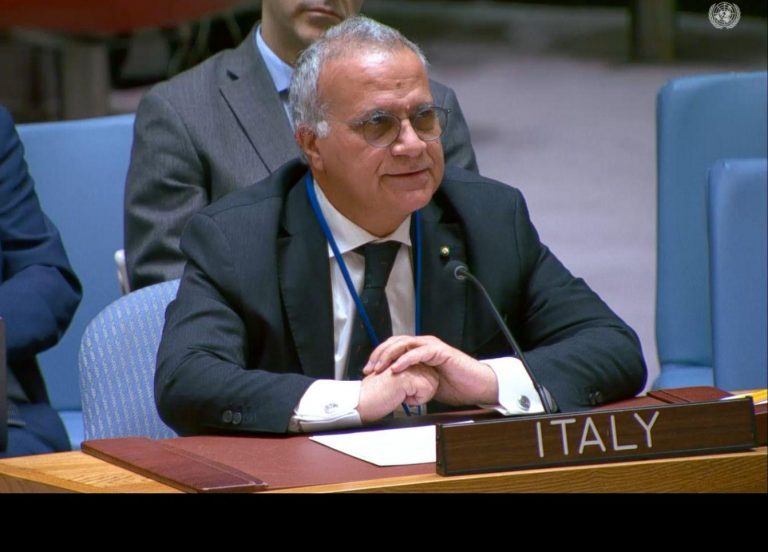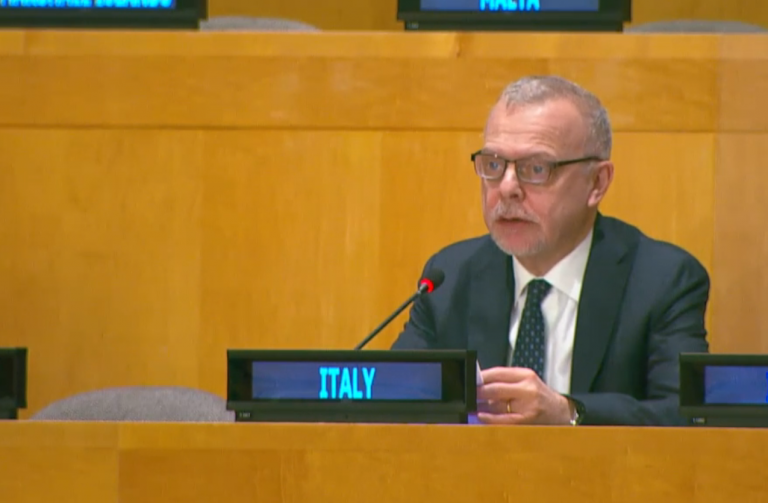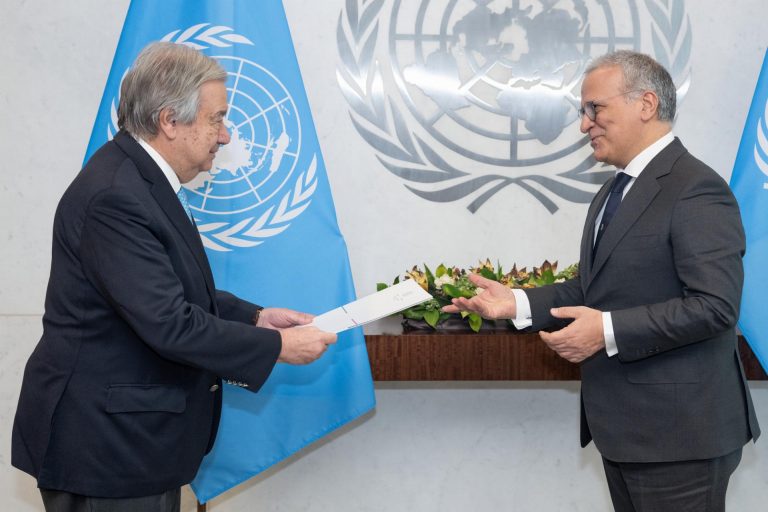Thank you, Mr Chair.
First of all, let me congratulate you and the other members of the Bureau for their election.
Italy aligns itself with the statement earlier delivered by the representative of the European Union and would like to add some additional remarks in a national capacity. We also align, of course, with the statement delivered by Nigeria on behalf of the group of States.
Mr. Chair,
With regard to the agenda item under discussion, my delegation is taking the floor today to reiterate Italy’s position on the recommendation of the International Law Commission to elaborate a convention on the basis of the Draft Articles on the Protection of Persons in the Event of Disaster adopted in 2016.
We welcome the progress made last year in the context of the Working Group established under GA Resolution 76/119 and we note that the interim oral report of the Chair of the Working Group signals the support for the elaboration of a convention in this field expressed by many delegations.
My delegation would like to take the opportunity of today’s debate to stress two points.
Mr. Chair,
Eight years have passed since the adoption by the ILC of the draft articles and its relevant recommendation and 17 years since the ILC decided to include the topic in its program of work in the wake of the Tsunami crisis. The issue of disasters – and their impacts on societies and populations – remains of paramount importance for the international community. The GA has recognized precisely that in every resolution adopted on this agenda item, including Resolution 76/119, when noting “with concern the increasing number of disasters in the world, as well as their intensity and impact on affected populations” and that “the subject of the protection of persons in the event of disasters is of major importance in the relations of States”. Those statements must be read in the context of the present grave climate crisis and its dire consequences on societies, especially on vulnerable communities. The 2024 Global Assessment Report recently launched by UNDRR and dedicated this year to disaster forensics has highlighted once again the increasing frequency and intensity of extreme events, such as heatwaves, droughts, fires and floods. According to the report, hazardous events are becoming more intense and frequent in all regions of the world. When vulnerability and exposure levels are high, then these hazard events are much more likely to become disasters. In terms of deaths, disasters related to extreme weather events disproportionally affect countries with less developed systems of early warning and low coastlines.
However, the 2021 WMO report on weather-related disasters shows that the brunt is also felt in countries and regions with more developed systems. For example, the 2003 and 2010 heatwaves in Europe were responsible for around 80% of the deaths due to weather-related disasters in Europe over the period 1970 to 2019, amounting to over 127,000 deaths.
During this year parts of Europe have been hit by disastrous floods causing severe damage, displacement of people and loss of lives. The recent devastation produced by hurricane Helene in the US is a stark reminder that no country is immune from extreme weather events with disastrous consequences.
These numbers refer to weather-related disasters only and yet they show that international cooperation with regard to disasters’ preparedness and disaster response, including through the development of appropriate legal instruments, is something that requires urgent attention by States.
Mr Chair,
This leads us to our second point today, which is on the role of the law – and international law in particular – in the context of disasters.
The Political declaration for the mid-term review of the Sendai Framework on Disaster Risk Reduction approved last year at the High-Level Meeting of the General Assembly in paragraph 26 calls upon States to “ensure that disaster risk governance is supported by legal and regulatory frameworks, policies and plans at all levels”.
Elaborating a convention on the international cooperation on the protection of persons in the event of disasters would fill an important legal gap. It would not be a mere exercise in progressive development of international law detached from State practice and existing international law and without any added value in terms of certainty, predictability and preparedness as compared to soft law arrangements. On the contrary. The current state of the international law on disaster risk reduction and response shows that international cooperation in this field is commonly regulated through international legally binding instruments. Contemporary international law sees an impressive number of bilateral and regional legal instruments (over 150 according to the online database of the Federation of the Red Cross) and some multilateral agreements dealing with certain specific issues concerning the management of disasters. Many of these agreements, especially in the last years, provide for clear and elaborate provisions on disaster risk reduction – a fundamental dimension that is also addressed in Article 9 of the Draft Articles and the commentary thereto. These existing agreements reinforce the domestic legislation that has been enacted by many countries. What is missing is a universal legal framework, which should play a complementary and practical function – when regional and bilateral treaties and specialized instruments are not in place with regard to a specific disaster – and which should inspire future bilateral, regional and sectorial agreements, hence facilitating international cooperation, from disaster risk reduction to disaster response.
In conclusion, Mr Chair,
Reinforcing international law at times of unprecedented global challenges for humanity is a responsibility of the GA in accordance with Article 13 of the Charter. Once again, we welcome the fact that Resolution 76/119 has established a clear timeline and an outcome-oriented process. We invite all delegations to engage in an open and substantive discussion in the framework of the Working Group and in the negotiations of the draft resolution with a view to making substantial progress towards the codification and development of international law in this important area of international cooperation.
I thank you.







